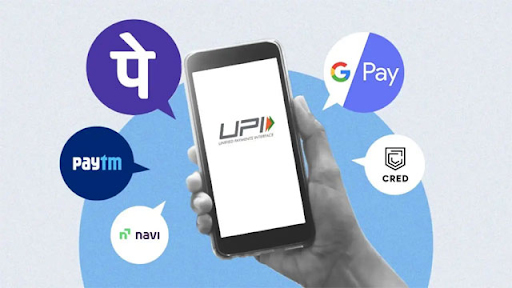Daijiworld Media Network – Mumbai
Mumbai, Sept 14: In a significant step to boost digital transactions, the Unified Payments Interface (UPI) will now support high-value payments of up to Rs 10 lac per day for select merchant categories from September 15.
The National Payments Corporation of India (NPCI) has revised the UPI transaction limits for Person-to-Merchant (P2M) payments, expanding digital capabilities in sectors such as insurance, capital markets, travel bookings, credit card bill payments, and loan repayments. The updated framework applies exclusively to verified merchants within these sectors.
Meanwhile, the limit for Person-to-Person (P2P) transactions remains unchanged at Rs 1 lac per day.

The revised limits are aimed at removing the inconvenience of splitting large payments or relying on older methods like cheques and net banking. For instance, in the insurance and capital markets sectors, the per-transaction limit has been increased from Rs 2 lac to Rs 5 lac, with a daily cap of Rs 10 lac.
Similarly, on the Government e-Marketplace (GeM) — covering transactions such as tax payments and earnest money deposits — the cap has risen from Rs 1 lac to Rs 5 lac per transaction.
The travel sector will now allow payments of up to Rs 5 lac per transaction for bookings such as flights, hotels, and packages, again with a Rs 10 lac daily limit. Credit card bill payments have also been relaxed, with a limit of Rs 5 lac per transaction, although a slightly lower daily ceiling of Rs 6 lac applies. Loan and EMI collections are now permitted up to Rs 5 lac per transaction, capped at Rs 10 lac per day.
For jewellery purchases, the limits have been moderately raised from Rs 1 lac to Rs 2 lac per transaction, with a maximum daily amount of Rs 6 lac. Additionally, digital term deposits and other banking services will now support transactions of up to Rs 5 lac per transaction and per day.
Fintech experts have widely welcomed the move, describing it as long overdue and highly impactful for digital adoption in high-value sectors.
Akash Sinha, CEO and co-founder of Cashfree Payments, said the revision addresses a real challenge for businesses dealing with large payments, particularly in sectors such as insurance, investments, and travel. He noted that it enables smoother digital checkouts and marks a shift in UPI’s role, evolving beyond low-ticket utility payments to support large-scale, time-sensitive transactions like IPO subscriptions and jewellery purchases.
Akshay Mehrotra, co-founder and CEO of Fibe, echoed the sentiment, stating that the higher transaction limits offer users added convenience and flexibility. According to him, this move reduces the need for multiple transactions and simplifies financial management, especially for policy renewals and capital market investments.
Given the larger sums now involved, the NPCI has implemented enhanced security protocols to prevent fraud. These include mandatory multi-factor authentication for high-value payments, real-time monitoring of transactions using artificial intelligence and machine learning, and a rigorous merchant verification process. Importantly, these changes will be automatically enabled for users, who do not need to make any manual updates.
Siddharth Mehta, co-founder of digital payments platform Kiwi, said that restricting these higher limits to verified merchants adds an essential layer of trust and safety, making big-ticket payments more secure and user-friendly.
The revised limits are expected to reduce transaction failures and make digital payments more viable in sectors previously underserved by UPI due to value restrictions. Consumers will now be able to make high-value payments — such as insurance premiums, investment contributions, and large travel bookings — in a single seamless transaction, without relying on legacy banking systems.
Overall, the move is being seen as a milestone in India’s digital payments journey, signalling that the UPI ecosystem is now mature enough to support not just everyday micro-payments but also substantial, high-value financial activities.